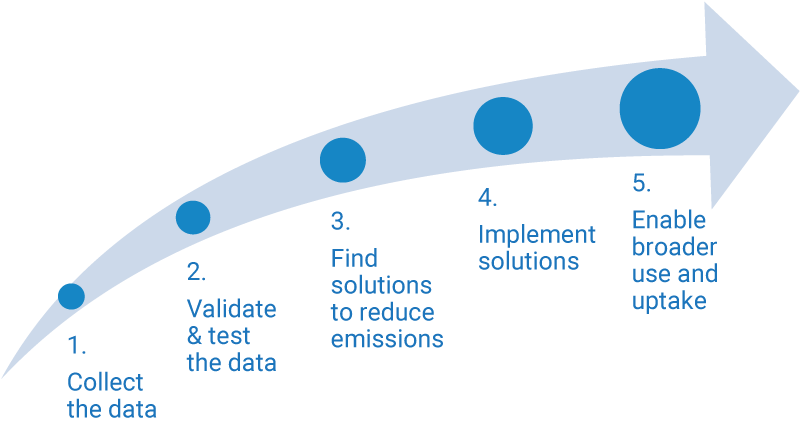Methane is the second most abundant greenhouse gas in the atmosphere and is an important target for emissions reductions to minimize impact to the environment. Reducing methane will also have positive effects on reducing coincidentally emitted VOCs which are precursors to ozone and photochemical smog formation.
The Collaboratory to Advance Methane Science (CAMS) is a research collaboration on methane science directed by some of the world’s top leaders in energy development and administered by GTI Energy, a leading research, development, and training organization.
Our Purpose
Through scientific research and technology evaluation, CAMS explores, discovers, and quantifies methane emissions, and develops solutions and approaches to reduce emissions.
Our Approach

What We Do
- Advance methane emissions controls
- Effectively leverage finite resources for scientific studies to address methane emissions along the entire value chain, from production to end use
- Produce real-time, accurate, on-the-ground data to effectively reduce emissions and inform analysis, regulations, and policy development
- Publish project results in peer-reviewed scientific journals and engage in communications initiatives to build public awareness of our results and conclusions to establish CAMS as a thought leader on these issues
Why It Matters
Maximizing the environmental benefits of natural gas requires reducing methane emissions across the entire value chain. Advancing the science of methane emissions will better inform debate.
CAMS research characterizes methane emissions and identifies specific sources, so mitigation strategies are most effective. Results from CAMS research has the potential to lead to technology solutions, better work practices, and new equipment designs to manage methane emissions.
Demonstrable advancements in the environmental performance of natural gas bolster the fuel’s reputation as a sustainable, safe energy source, and the collaboration reinforces industry’s long-term commitment to environmental performance.
CAMS research contributes to:
- Improved estimates for methane emissions – statistically valid data and tools
- Improved measurement, quantification, prioritization, and mitigation
- Reconciliation of data
- Cross-sector research and planning that is complementary rather than redundant




